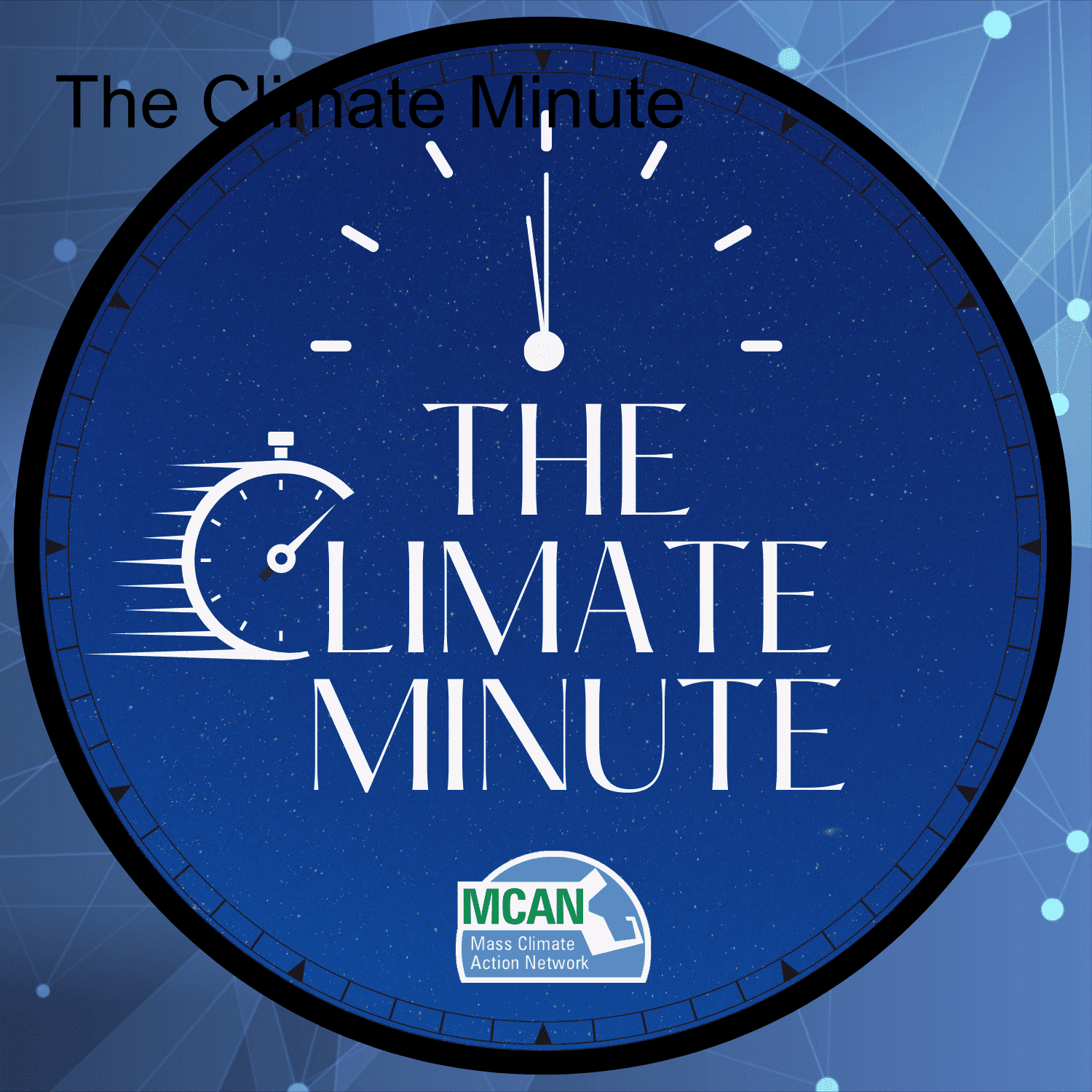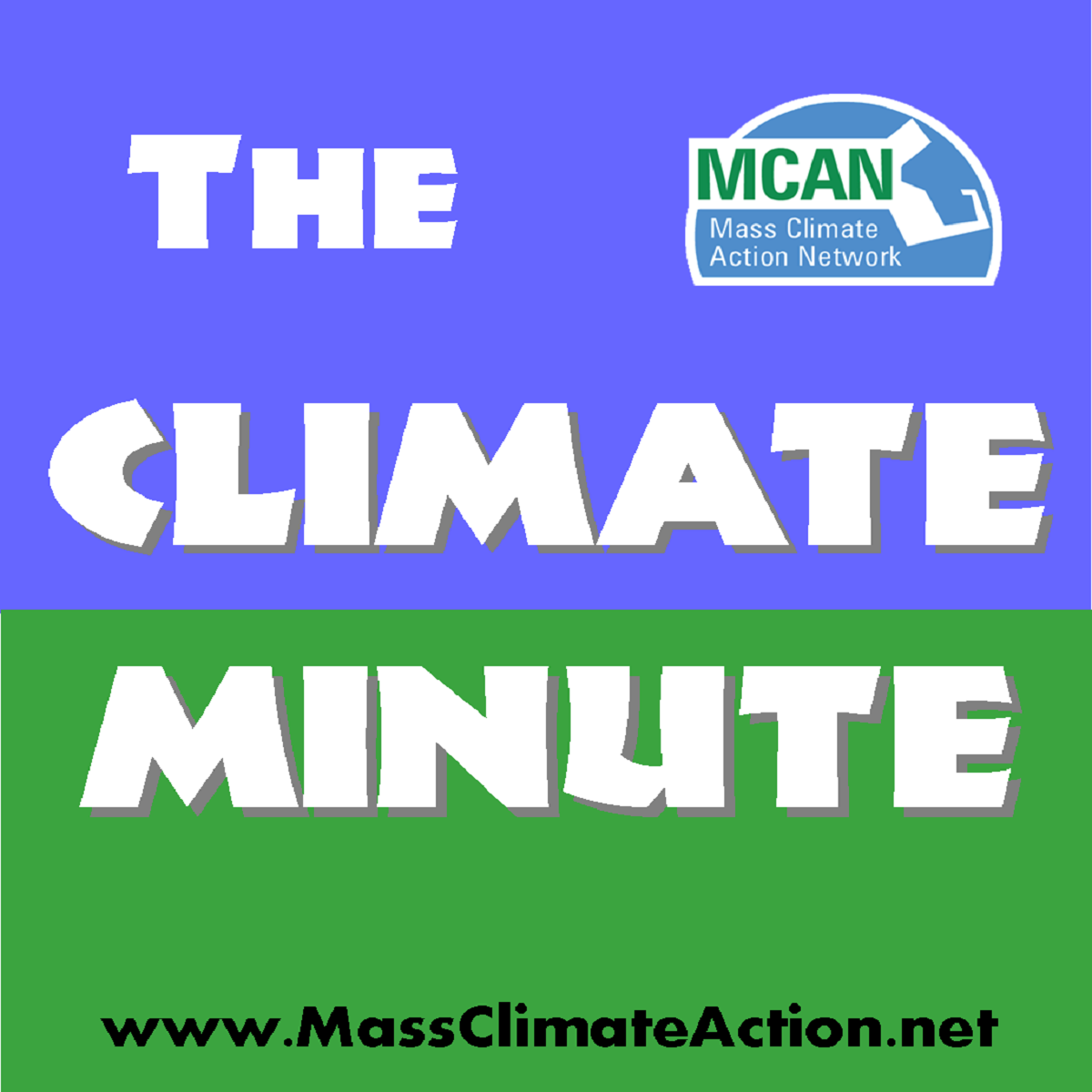
765.7K
Downloads
995
Episodes
The Climate Minute examines current news on global warming, climate change, renewable energy and the prospects for progress on international negotiations, carbon taxes and clean energy policy.
Episodes

Monday Jun 01, 2015
Democracy and Climate Intertwined - The Climate Minute Podcast
Monday Jun 01, 2015
Monday Jun 01, 2015
“Want climate action? Don’t be a fool;
It’s never gonna happen under corporate rule!”
“Want climate justice? Here’s step one:
Build a democracy to get it done!”
Those were among the slogans we chanted as we marched down Central Park West last September. From the moment the march was announced, I knew I would make the trip down from Boston, and I also knew that there among the scores of climate activists of every imaginable stripe, from anarchists to educators to evangelicals, from scientists to socialists, I would be marching with a cadre representing the growing “democracy movement.”
I see the battle for climate action as being waged basically on two fronts, reflective of the twin root causes of the crisis. On the one hand, at the heart of all the drivers of climate change we find a short-sighted and rapacious consumer culture, global in scope but distilled most clearly here in America. The work of addressing this fundamental malaise is a “hearts and minds” campaign of sorts – educating and shaping the habits of the general public – and it’s absolutely critical; from buying efficient light bulbs and hybrid cars to eating locally and turning down the thermostat, the choices we make in our individual daily lives add up to make a real difference.
But we cannot ignore the profound impact that public policy decisions have on our energy use. Even in the world’s freest markets, the invisible hand is constrained and influenced by the rules set in place by governments. In theory, that means that you and I – all of us, collectively as citizens – have a say in determining the incentives and restrictions that give shape to U.S. energy policy on both the supply side and the demand side: Should we be giving subsidies to Exxon and Shell because it’s somehow good for the economy? Tax credits to homeowners who install renewable capacity or upgrade the energy efficiency of their homes? Both? In what amounts and for how long? Should we be capping emissions on CO2 from power plants? Loosening rules on fracking to provide jobs and lower energy prices? Or providing low-cost loans to companies developing renewable energy technology? Perhaps most significantly, should we be pricing carbon at a level that reflects its true costs, to make up for what will likely be viewed in hindsight as the most costly market failure of human history?
Most of these questions, to me, have clear answers, and many of them we continue to get wrong. While some progress is made in fits and starts, at the margins, I can’t imagine anyone who understands the climate crisis making the case that the U.S., no longer the top emitter but still firmly in the #2 slot and a leader on world policy, has developed anything remotely resembling an adequate, comprehensive climate policy. Some of the inaction, or the actively destructive policy, is enabled by misunderstanding and complacency among the public. But much of the mess we’re in today can be traced to a gradual consolidation of power, over the last few decades, in the hands of fewer individuals and, most notably, global corporations. As these forces representing the production and accumulation of tremendous private wealth among CEOs and the investor class exert more and more control over public policy, the chances for effective action on climate, in the name of the public good but at the expense of some of the lucre being raked in by industrial titans and investors, become vanishingly slim.
There is, however, hope in our history! The American experiment has been punctuated by moments that have clarified crises and exposed injustices, and in those moments people have mobilized to force action, to right wrongs, to continue the work of building a more perfect union. Grassroots campaigns have emerged to tackle the darkest problems we've faced, from the abolitionists to the suffragettes, to the protests that eventually forced reconsideration of the Vietnam War. Out of the disparity of the Gilded Age arose a tide of progressive reforms, including the labor movement that fought a bloody campaign to win rights for workers. And of course, the 20 million Americans who took to the streets as citizens and stakeholders on the first Earth Day spurred a raft of legislation that still forms the framework of our environmental protections today.
As the crisis of our unresponsive and unrepresentative political system comes into sharper focus, a new movement is rapidly coalescing to take the reins and build a better system, closer to our American ideals, equipped to tackle our biggest problems, foremost among them the disruption of the planetary systems that support our civilization. And as that movement for democracy grows, there's a concrete opportunity to help it along here in Massachusetts.
There’s a bill pending in the Massachusetts legislature, H. 3127, called the We the People Act, that would take a bold step toward reversing the erosion of our democracy and putting all of us, not just those with the most wealth and power, in the driver’s seat to set our nation’s policies.
The We the People Act is the product of a homegrown democracy movement, the local expression of a growing national movement to address two fundamentally destructive legal doctrines created by the Supreme Court, in the Citizens United decision and a long string of cases that came before it, that have enabled today’s unresponsive political system. The bill calls on Congress to pass a constitutional amendment asserting that the rights protected by the Constitution are the rights of actual human beings, not corporations, and also that we can and should place limits on the way money is raised and spent in our elections, because money is not speech, and campaign finance rules are not incompatible with the First Amendment’s protection of free speech.
Massachusetts has already called on Congress for an amendment, with a near unanimous resolution in 2012 (joining a list of 16 states and counting), but the reality is that the prospect of action in today’s Congress is basically nil, so the We the People Act brings out the big guns – a tool that has been used successfully in the past to pressure a corrupt and intractable Congress into constitutional reform. The tool is a convention of the states, outlined in Article V of the Constitution, and it’s the only way that we, as citizens and state legislators, can exert the kind of leverage that will force Congress to listen.
Once corporations can no longer overturn environmental regulations and other public health and safety laws by claiming constitutional rights, and once our elections have been wrested away from the system of legalized bribery that has been codified in recent years, a whole new realm of positive change becomes possible. To address the climate crisis, we need a revolution in our energy policy. That change depends on the success of a political revolution to build a functioning democracy.
- Taylor Gaar, volunteer, Greater Boston Move to Amend
Read more at www.wethepeoplemass.org

No comments yet. Be the first to say something!